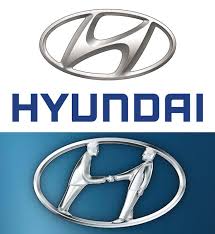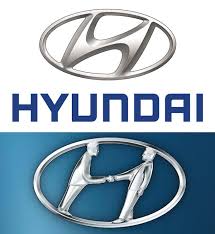
The South Korean auto maker Hyundai has failed to take advantage of the opportunities in North Korea and its business there has been a story of a tragedy.
The suicide of an executive of a company that was instrumental in setting up the Gyundai’s business in North Korea in 2003, just months before the launch an industrial complex there, had stalled the project. It was alleged that the company of the executive had paid $500 million secretly to North Korea.
And then Hyundai had to close down a resort in North Korea following the death of a South Korean tourist shot by a North Korean soldier, in 2008.
Both the projects have since come to an end and these incidents highlighted the challenges that companies from South Korea face in the North.
But now Hyundai is again preparing to return to North Korea because of the slow normalization of the relationship between the North and South Korea and the large working population in the North where cheap labor is easily available compared to South Korea.,
In recent agreements between the North and the South, the one time warring neighbours, have both pledged to re-open the Kaesong industrial park and the Mt. Kumgang resort. These are part of the measures that both the sides are talking to better ties with each other.
“We have invested a lot for a long time, and have a solid and wide network and business rights there," said Baek Cheon-ho, a senior executive at Hyundai Asan, the subsidiary that managed the Kaesong and Mt. Kumgang projects. "Combining all that, Hyundai will eventually be better off in North Korea."
According to Baek and a number of other industrialists quoted in the media, North Korea is a market where South Korean industry can easily gain access to cheap labor, highly rich natural resources and strong domestic growth potential, which is alluring for South Korea Inc, given the high labor costs and slowing growth in South Korea.
"We're doing this not only for Hyundai, but for the greater good of all South Korean companies," Baek said. "If we restart our North Korea businesses, there will be many new jobs for us, but also for a number of other firms working with us."
"Stocks like Hyundai Elevator are now going up and down driven by anticipation and headline news, rather than fundamentals," said Lee Gun-min, a fund manager BNK Asset Management. "But we think there is a better chance and visibility about economic cooperation than in the past since the two Koreas are now talking about ending the war."
The Kaesong industrial park was called a "lifeline" for South Korea by South Korean President Moon Jae- who has been instrumental in bettering ties with North Korea ever since his election last year.
Before it was completely shut down in 2016, Kaesong housed about 120 South Korean firms who had employed more than 55,000 North Korean workers. The companies were engaged in the manufacturing of a wide range of products – from clothes and kitchen utensils to electronic components.
Hyundai is also holding talks with the South Korean government and other state-run corporations to explore the possibilities of reconstruction railroads that connect the North and South, said Hyundai's Baek.
"The government respects Hyundai's business rights it signed with the North," said a spokeswoman at South Korea's Unification Ministry, who did not respond to a question about its discussions with Hyundai.
(Source:www.news.ans-cbn.com)
The suicide of an executive of a company that was instrumental in setting up the Gyundai’s business in North Korea in 2003, just months before the launch an industrial complex there, had stalled the project. It was alleged that the company of the executive had paid $500 million secretly to North Korea.
And then Hyundai had to close down a resort in North Korea following the death of a South Korean tourist shot by a North Korean soldier, in 2008.
Both the projects have since come to an end and these incidents highlighted the challenges that companies from South Korea face in the North.
But now Hyundai is again preparing to return to North Korea because of the slow normalization of the relationship between the North and South Korea and the large working population in the North where cheap labor is easily available compared to South Korea.,
In recent agreements between the North and the South, the one time warring neighbours, have both pledged to re-open the Kaesong industrial park and the Mt. Kumgang resort. These are part of the measures that both the sides are talking to better ties with each other.
“We have invested a lot for a long time, and have a solid and wide network and business rights there," said Baek Cheon-ho, a senior executive at Hyundai Asan, the subsidiary that managed the Kaesong and Mt. Kumgang projects. "Combining all that, Hyundai will eventually be better off in North Korea."
According to Baek and a number of other industrialists quoted in the media, North Korea is a market where South Korean industry can easily gain access to cheap labor, highly rich natural resources and strong domestic growth potential, which is alluring for South Korea Inc, given the high labor costs and slowing growth in South Korea.
"We're doing this not only for Hyundai, but for the greater good of all South Korean companies," Baek said. "If we restart our North Korea businesses, there will be many new jobs for us, but also for a number of other firms working with us."
"Stocks like Hyundai Elevator are now going up and down driven by anticipation and headline news, rather than fundamentals," said Lee Gun-min, a fund manager BNK Asset Management. "But we think there is a better chance and visibility about economic cooperation than in the past since the two Koreas are now talking about ending the war."
The Kaesong industrial park was called a "lifeline" for South Korea by South Korean President Moon Jae- who has been instrumental in bettering ties with North Korea ever since his election last year.
Before it was completely shut down in 2016, Kaesong housed about 120 South Korean firms who had employed more than 55,000 North Korean workers. The companies were engaged in the manufacturing of a wide range of products – from clothes and kitchen utensils to electronic components.
Hyundai is also holding talks with the South Korean government and other state-run corporations to explore the possibilities of reconstruction railroads that connect the North and South, said Hyundai's Baek.
"The government respects Hyundai's business rights it signed with the North," said a spokeswoman at South Korea's Unification Ministry, who did not respond to a question about its discussions with Hyundai.
(Source:www.news.ans-cbn.com)





